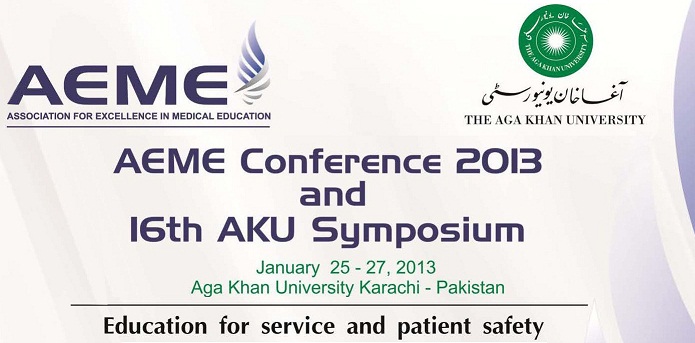Day 1 : Oral Presentations (Theme: Patient Safety)
Risk factors for complicated-varicella infection in Pediatric Oncology patients at a tertiary health care facility in Pakistan
Location
Lecture Hall 2
Start Date
26-1-2013 4:40 PM
Abstract
Background: Varicella zoster infection (VZI) is well recognized as a potential cause of morbidity and mortality in immune-compromised oncology patients. The purpose of this study was to describe the clinical profile risk factors for complications and outcome of varicella in pediatric oncology patients treated with acyclovir.
Methods: Medical records of all pediatric oncology patients with discharge diagnosis of VZI over a period of 7 years (2005-2011) were retrieved and reviewed by using hospital information management system. The demographic features, underlying malignancy, risk factors for varicella infection, complications and outcomes were recorded.
Results: During the 7 year period, 36 pediatric oncology patients with VZI were identified, 2 secondary cases were excluded. Leukemia was the most common underlying malignancy (n=20, 58.8%), followed by lymphoma (n=7, 20.6%) and solid organ tumors (n=7, 20.6%). Most (41%) cases were observed in children under 5 years of age. All patients were treated with acyclovir. Varicella-related complications developed in 10 (29%) patients. Most frequent complication was bloodstream infection (n=3, 8.8%), followed by pneumonia (n=2, 5.9%), skin infection (n=2, 5.9%), hepatitis, renal failure and encephalitis. Independent risk factors associated with development of complications were age < 5th percentile, delay in seeking care (> 7 days after onset of symptoms) and severe neutropenia (ANC < 500/cm). One child died secondary to varicella encephalitis.
Conclusions: Our data suggests that young age, being underweight, poor health seeking behavior and severe neutropenia are the major risk factors for development of varicella-related complications in pediatric oncology patients in developing countries. These complications could be favorably modified through an active immunization of immune-competent children.
Key words: Varicella; Immuno-compromised; Oncology; Acyclovir; Complications
Risk factors for complicated-varicella infection in Pediatric Oncology patients at a tertiary health care facility in Pakistan
Lecture Hall 2
Background: Varicella zoster infection (VZI) is well recognized as a potential cause of morbidity and mortality in immune-compromised oncology patients. The purpose of this study was to describe the clinical profile risk factors for complications and outcome of varicella in pediatric oncology patients treated with acyclovir.
Methods: Medical records of all pediatric oncology patients with discharge diagnosis of VZI over a period of 7 years (2005-2011) were retrieved and reviewed by using hospital information management system. The demographic features, underlying malignancy, risk factors for varicella infection, complications and outcomes were recorded.
Results: During the 7 year period, 36 pediatric oncology patients with VZI were identified, 2 secondary cases were excluded. Leukemia was the most common underlying malignancy (n=20, 58.8%), followed by lymphoma (n=7, 20.6%) and solid organ tumors (n=7, 20.6%). Most (41%) cases were observed in children under 5 years of age. All patients were treated with acyclovir. Varicella-related complications developed in 10 (29%) patients. Most frequent complication was bloodstream infection (n=3, 8.8%), followed by pneumonia (n=2, 5.9%), skin infection (n=2, 5.9%), hepatitis, renal failure and encephalitis. Independent risk factors associated with development of complications were age < 5th percentile, delay in seeking care (> 7 days after onset of symptoms) and severe neutropenia (ANC < 500/cm). One child died secondary to varicella encephalitis.
Conclusions: Our data suggests that young age, being underweight, poor health seeking behavior and severe neutropenia are the major risk factors for development of varicella-related complications in pediatric oncology patients in developing countries. These complications could be favorably modified through an active immunization of immune-competent children.
Key words: Varicella; Immuno-compromised; Oncology; Acyclovir; Complications

